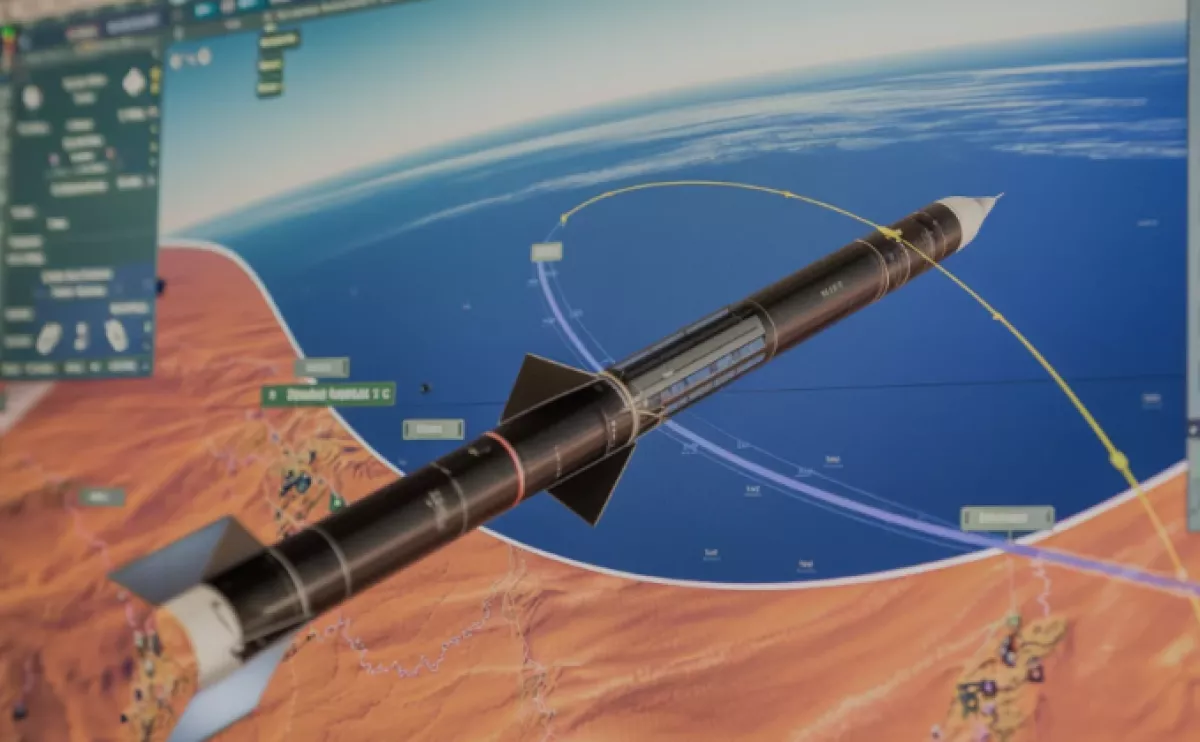Russia’s Oreshnik missile strike on Dnipro doesn’t shift nuclear risk, ISW report finds video of the attack
The recent shelling of Dnipro by Russia using the Oreshnik ballistic missile does not significantly alter the country’s missile strike capabilities or increase the risk of nuclear weapons use, according to an evaluation by the Institute for the Study of War (ISW).
Russian forces regularly launch various missile types, including Iskander ballistic missiles, Kinzhal hypersonic missiles, and Kh-101 cruise missiles, all capable of carrying nuclear warheads, at Ukrainian targets, Caliber.Az reports citing ISW's latest assessment.
Earlier missile strikes by Russia have focused on industrial facilities and critical infrastructure, particularly in Dnipro, causing significant damage. However, ISW pointed out that the only notable aspect of the missile strikes on Dnipro on November 21 was the deployment of the Oreshnik missile.
The use of this missile demonstrated Russia's capability to deploy warheads that fragment into multiple pieces, causing even greater destruction and heightening concerns over nuclear risks.

Despite these developments, ISW emphasized that Western nations possess reliable mechanisms to deter such threats. The institute further stated that the ongoing nuclear rhetoric from Russia should not discourage Western leaders from continuing their support for Ukraine.
Meanwhile, Japanese authorities have remained quiet on Russia’s use of the Oreshnik missile in its recent attack on a Ukrainian defence facility.
The matter was addressed by Yoshimasa Hayashi, Japan’s Cabinet Secretary General, at a regular press briefing. In response to questions about the Russian missile use, Hayashi said, "We would like to refrain from commenting on individual cases related to the situation on the battlefield."
However, he reiterated Japan’s criticism of Russia’s actions in Ukraine and assured that the Japanese government would continue to monitor the evolving situation closely.
Similarly, Japan's Foreign Minister Takeshi Iwaya also refrained from commenting directly on the missile’s use during his press briefing.
Russian President Vladimir Putin confirmed the use of the Oreshnik missile in a statement on November 21, describing it as part of a combined strike on a Ukrainian defense-industrial complex. "On November 21, the Russian armed forces carried out a combined strike on one of the facilities of Ukraine's defense-industrial complex. The combat conditions included a test of one of the newest Russian medium-range missile systems. In this case with a ballistic missile with non-nuclear hypersonic equipment," Putin said.
He claimed the test was successful, with the strike hitting a major industrial complex in Dnipro, which has been producing missile equipment and other weapons since Soviet times.
Putin further explained that the missile strike was a response to earlier attacks on Russian territory using US and UK-made missiles. "From this moment on, as we have repeatedly emphasized, the regional conflict in Ukraine, previously provoked by the West, has acquired elements of a global character," he concluded.
By Tamilla Hasanova








